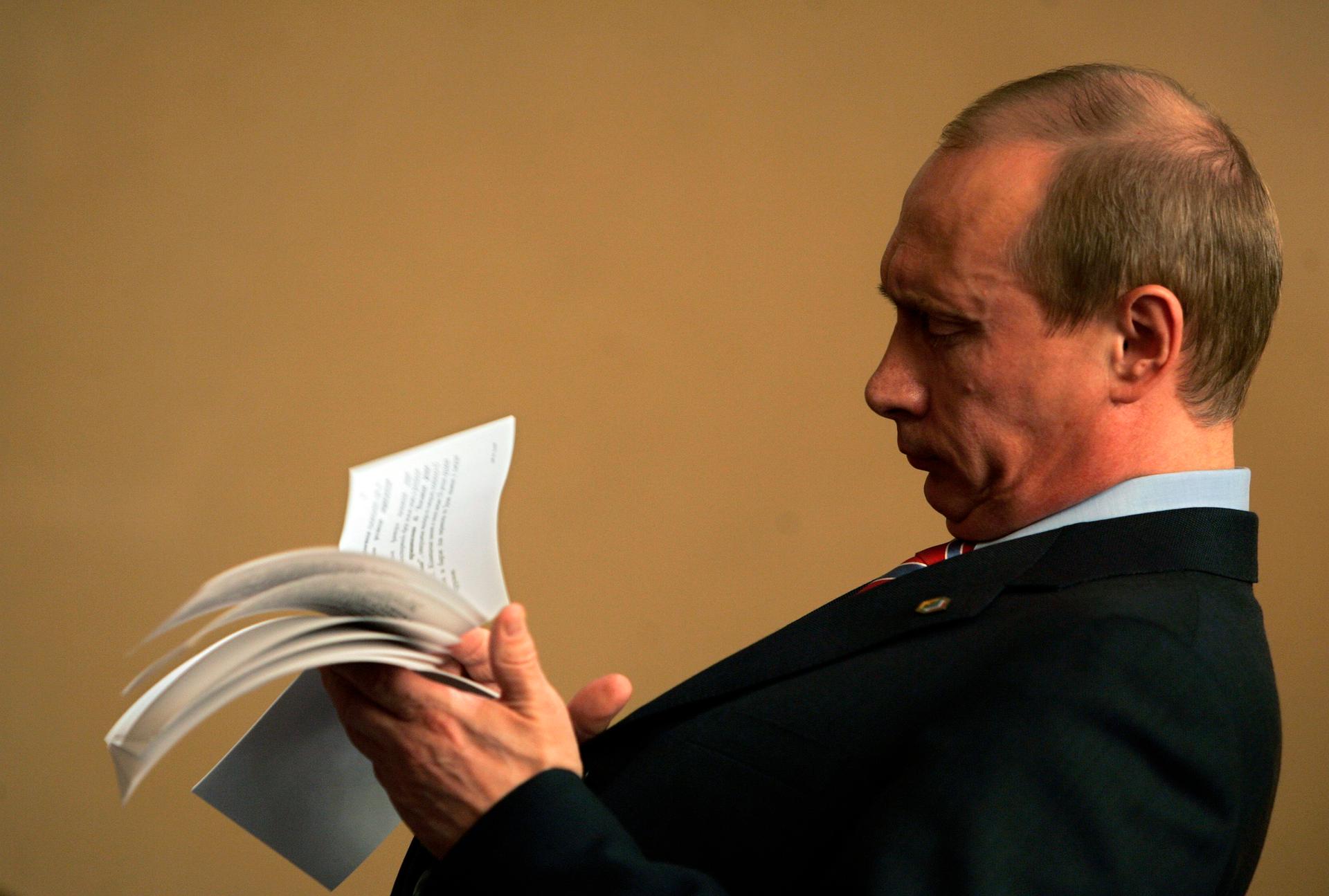Senate approves new sanctions over Russia’s meddling in US election
Russian President Vladimir Putin checks his notes before meeting his Serbian counterpart Boris Tadic at the sidelines of the Energy Summit of Southeast European Countries in Zagreb June 24, 2007.
The US Senate on Wednesday overwhelmingly approved a new package of sanctions that punish Russia for its efforts to alter the course of the 2016 presidential election.
The vote was 97-2 for the package. Republican Senators Mike Lee and Rand Paul voted against the amendment.
According to a press release, the new measure will:
Impose new sanctions on: corrupt Russian actors; those seeking to evade sanctions; those involved in serious human rights abuses; those supplying weapons to the Assad regime; those conducting malicious cyber activity on behalf of the Russian government; those involved in corrupt privatization of state-owned assets; and those doing business with the Russian intelligence and defense sectors.
- Codify and strengthen existing sanctions contained in executive orders on Russia, including the sanctions’ impact on certain Russian energy projects and on debt financing in key economic sectors.
Allow broad new sanctions on key sectors of Russia’s economy, including mining, metals, shipping and railways.
Authorize robust assistance to strengthen democratic institutions and counter disinformation across Central and Eastern European countries that are vulnerable to Russian aggression and interference.
Require a study on the flow of illicit finance involving Russia and a formal assessment of U.S. economic exposure to Russian state-owned entities.
Require the president to seek congressional approval before lifting the sanctions.
The bipartisan bill comes as the White House is deeply embroiled in a crisis over whether Trump's campaign team colluded with Russian officials to help sway the 2016 election in Trump's favor.
"Today, the Senate has finally confronted Russia for interfering in our elections. This bipartisan amendment is the sanctions regime that the Kremlin deserves for its actions," Democratic Senator Jeanne Shaheen, who pushed for the legislation, told Reuters.
In addition to Russia's cyberattacks, the tightened sanctions were labeled a response to Russia's violation of Ukraine's territorial integrity, and its role in Syria.
It remains to be seen how Russian President Vladimir Putin will respond.
“Whenever the US does something that Russia doesn’t like, Russia picks things to do that the US wouldn’t like,” says Simon Saradzhyan, founding director of the Russia Matters Project at Harvard Kennedy School’s Belfer Center for Science and International Affairs. “I don’t expect the Russian government to sanction the US shipping industry or railway industry or metal industry … but [Putin] is going to try to find sectors on which the impact would be comparable.”
Existing US sanctions imposed by the Obama administration have hurt Russia’s economy, but haven’t moved the Kremlin on policy, according to Saradzhyan.
“Russians felt the pain from sanctions, but it didn’t change the overall policy of Russia,” Saradzhyan says.
The Senate is expected to hold its final vote on the legislation as early as this week. It then heads to the House of Representatives.
Agence France-Presse reporting was used in this report.
The story you just read is accessible and free to all because thousands of listeners and readers contribute to our nonprofit newsroom. We go deep to bring you the human-centered international reporting that you know you can trust. To do this work and to do it well, we rely on the support of our listeners. If you appreciated our coverage this year, if there was a story that made you pause or a song that moved you, would you consider making a gift to sustain our work through 2024 and beyond?
